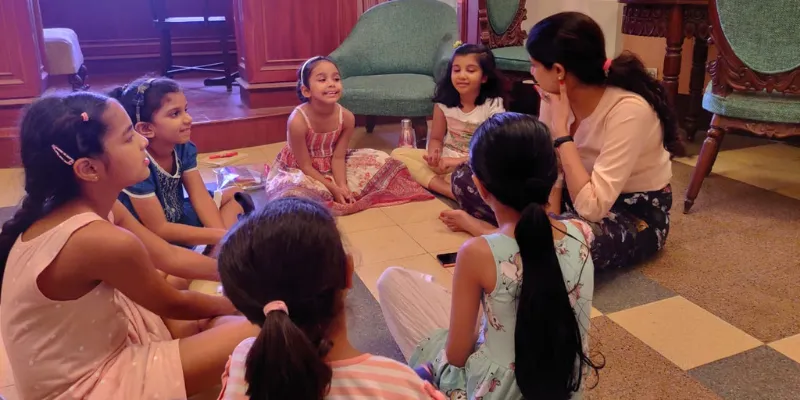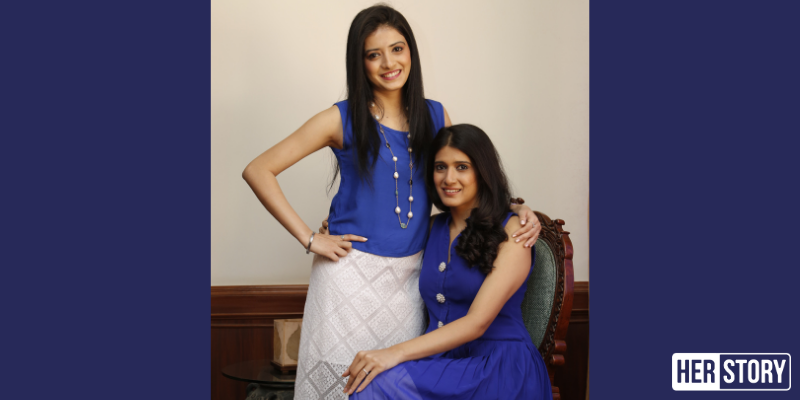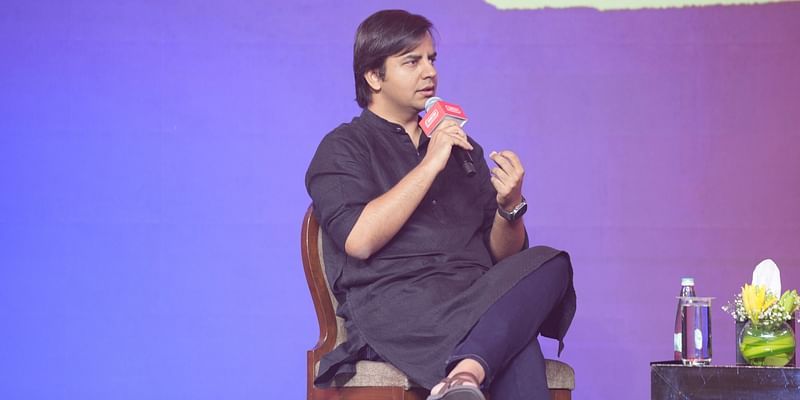The sound of music: This sister duo’s startup is using music therapy to help children and adults
Kamakshi and Vishala Khurana started The Sound Space in 2010 to help children and adults achieve wellness through music and sound therapy.
Be it a tough day or a happy celebration, music has the power to capture every emotion. While music serves as a mood lifter and a companion in times of need, on other days, playing music is therapeutic after a long day of work.
Sisters Kamakshi and Vishala Khurana rely on this versatile performing art to help children and adults find wellness through sound and music therapy.
“Music has been found to have a major impact on mental health and wellbeing. Music therapy works under the basic premise that music can benefit mood regulation, self-expression, self-esteem, anxiety, interpersonal effectiveness, treatment motivation, positive coping skills, and more. There’s no one-size-fits-all treatment when it comes to healing through music,” Vishala tells HerStory.
Their endeavour, The Sound Space, established in 2010 in Mumbai, is a labour of love. The sisters, who are trained in Psychology and Indian classical music, are striving to “make whatever change we can, doing what we know best – music.”
The sound of music
Kamakshi and Vishala were introduced to music in their mother’s womb. Their father, a trained musician and sound healer, sang to them every day before their birth and made sure that the power of music resonated with his daughters as well. The duo started learning music as young as three years old. Their love for music grew and led them to finish a visharad (bachelors) in Hindustani classical music while simultaneously studying psychology.
Music was so ingrained in their everyday life that they would learn their time-tables in a rhythm and make a song out of the history dates.
“The role of music in our lives is very difficult to put into a sentence – but it is the soul of our lives. It is a means to express oneself, a passion, an instant pick me up, and most importantly, a life-long companion,” shares Vishala.
The sisters combined both music and psychological learnings to create The Sound Space.

Sisters Kamakshi and Vishala in their musical element.
The therapeutic effect of music
The idea started to take shape when the two gradually paved their careers while teaching Indian music in a deconstructed form to children and adults. It became apparent to them that the benefits of Indian music needed to be made more amenable and accessible in a fun and contemporary way.
This experience led them to create specialised sessions for children and adults that can help them to focus their energies, de-stress, heal, recover, achieve inner balance, for post-trauma rehabilitation, and even to simply learn music.
“Music can be used within a therapeutic relationship to address physical, emotional, cognitive, and social needs of individuals. It also provides avenues for communication that can be helpful to those who find it difficult to express themselves in words. Through the past years of working with children and adults with special needs, we have found that it can really change lives. Also, one does not have to be ‘ill’ to want to experience music therapy,” says Kamakshi.
Their therapy techniques are inspired by Raga-Chikitsa which is based around the idea that every raga affects the body and mind. They also use the study of the chakras or energy centres and their specific bija mantras or seed sounds. They use several activities like focused music listening, songwriting, song discussion, group instrument playing, music and relaxation, singing, and others to create customised sessions for groups and individuals.
Through The Sound Space, the sisters are training students, teachers and caregivers from various schools, care centres and NGOs in the city including Bombay International School, JBCN, Children's Nook, Jai Vakeel Foundation, Akanksha Foundation, Seva Sadan Society, Byramjee Jeejeebhoy Homes, and more.
The sisters claim that teachers and participants alike have reported an improvement in cognitive abilities, better understanding and enhanced concentration following the addition of The Sound Space’s module into their routines. They say that music also works as a form of expression for children who come from low-income families.

Music lessons underway at The Sound Space.
The way forward
Vishala shares that starting up was not easy as they had to encounter unfriendly environments due to them being “two unmarried girls”. Ten years ago, the concept of music in healing and alternative therapies was not very popular and they had to prove to people that it was authentic and effective.
Having shown that the concept works, the duo is now ensuring that music becomes a part of people’s lives in a meaningful and structured way. They hope to introduce music as part of the education system through government and non-government organisations.
During the pandemic, they have shifted their classes online and are working on a fund-raising concert “Bulandiyaan” to enable them continue their non-profit work with NGOs.
Edited by Kanishk Singh












